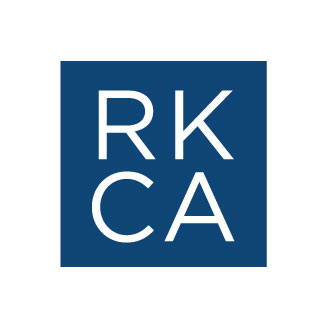You can’t sit around waiting for the answers
I had the privilege in 2014 to travel to Omaha for the Berkshire Hathaway Annual meeting. A friend had tickets and I was able to check an item off my bucket list. With the confluence of kids, work, COVID restrictions, and lack of a direct flight to Omaha…I have been unable to return. However, I enjoy watching it every year.
When I was sitting down to write this month’s RKCA Insights, I was reflecting on one of the recent annual meetings and something Charlie Munger said in 2019:
Munger: “Young lawyers frequently come to me and say, ‘How can I quit practicing law and become a billionaire instead?’ I say, well, it reminds me of a story they tell about Mozart.
A young man came to him, and he said, ‘I want to compose symphonies. I want to talk to you about that.’ Mozart said, ‘How old are you?’ ‘Twenty-two.’
And Mozart said, ‘You’re too young to do symphonies.’ And the guy says, ‘But you were writing symphonies when you were ten years old.’
He says, ‘Yes, but I wasn’t running around asking other people how to do it.’”1
There is a duality of skills in this story that is important for us to remember: don’t be afraid to ask questions AND don’t be sitting waiting to be handed an education. Easier said than done, right?
Some of us are more equipped than others at being good at one (or both) of the above skills. And the “test” of these skills usually comes at some inflection point in our lives. I can recall being a parent for the first time and both asking a ton of questions and doing everything I could to educate myself (read/prep the house/watch videos) for success (on the third child the pressure isn’t as high).
Are there moments in your life where you have felt this test of the duality of skills?
We spend our days at RKCA meeting with business owners, and often without fail, the evaluation of selling your business is one of these “test” moments. Have I been asking the right types of questions, the right number of, the right order of questions about selling my business? is an example of a rhetorical line of questioning and self-reflecting. The right banker is one of the best sources to help answer these types of questions, as well as advisors, lawyers, accountants, and connections who have sold their business recently.
Where, in my opinion, this duality really matters is with getting the education to be ready to sell. For example, if you are asking the question about when the right time to sell is, an answer to that could be totally different depending on who you ask and can be very subjective. Asking a friend who recently sold their business may provide an answer on timing that is not at all applicable to your business but was at the time to his/hers. But if you’re getting an education from a banker in terms of what impacts the value of your business, then you can take that education and apply it. This is much more of an objective viewpoint.
When we work to educate our clients around what impacts value, we have a list of typical key value drivers and value detractors. Below is a sample of three:
Typical Growth Story
o Value Driver: A history of consistent growth; buyers know there will be some degree of lumpiness (e.g., if you had an impacted COVID year) but showing consistent growth and attention to it matters
o Value Detractor: a lack of history OR inconsistency. If this is a reality for your business, we take clients through additional education and strategies around how to work to a more consistent growth story.
Potential Risk Mitigation
o Value Driver: Revenue diversification
o Value Detractor: Customer concentration. If this is a reality for your business, working with a banker on a program to help de-risk concentration OR articulate to a potential buyer why the concentration is a benefit to them, will help.
Visibility
o Value Driver: Strong ability for management to accurately forecast growth
o Value Detractor: Lack of KPIs. If this is a reality for your business, I wrote last month (link) about scorecards and our dashboard for clients to help build your KPI reporting to support this.
I am not sure, knowing Charlie Munger, how much of that story was a folksy Munger-ism or something that actually happened. Assuming it did, what do you think happened to that aspiring composer? Did they end up taking initiative and getting to composing? Did they leave Mozart and then write to Clementi in Italy asking for the same question but expecting a different answer?
If you feel like you haven’t been getting the right education about how to build value for your business, email us: IwanttobeMozart@rkca.com
- Berkshire Hathaway Annual Meeting, May 4, 2019.
DISCLAIMER:
The content of this material was obtained from sources believed to be reliable. However, RKCA does not warrant the accuracy or completeness of any information contained herein and provides no assurance that this information is, in fact, accurate. The information and data contained herein is for informational purposes only and is subject to change without notice.
The material is provided solely for informational purposes and does not consider the specific objectives, circumstances or profile of any particular buyer or seller and should not be relied upon for any specific course of action. This material should not be considered, construed, or followed as investment, tax, accounting, or legal advice. Any opinions expressed in this material are those of the authors and do not necessarily reflect those of other employees of RKCA. Market data proprietary to source cited, may not be reprinted, reproduced, or used without permission from the source or RKCA.
Investing involves the risk of loss. Past performance is not indicative of future results.
The content of this material should not be construed as a recommendation, offer to sell or solicitation of an offer to buy a particular security or investment strategy.
Investment banking services provided by RKCA, Inc., Member SIPC/FINRA. Non-securities related services provided by RKCA Services, LLC. 1077 Celestial Street, Cincinnati, Ohio 45202. Phone: 513.371.5533.

